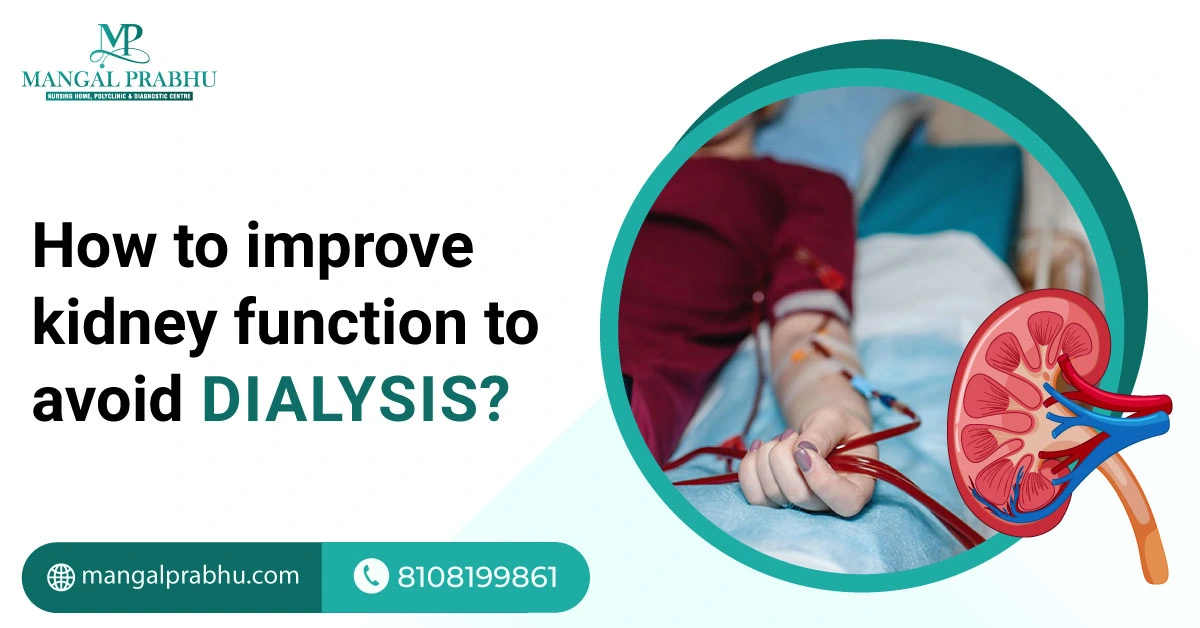
Dialysis is a life-saving treatment for patients who are at an advanced stage of kidney disease. While it may be necessary for those who’ve sustained severe kidney damage, there are ways you can avoid going through dialysis. We’ve compiled a list of the best kidney practices recommended by every nephrologist in Navi Mumbai for good kidney health. These can help improve kidney function, making it more efficient at filtering the waste and excess fluid from your bloodstream. Here’s what can help.
Diet and Nutrition
Your diet plays an important role in keeping your kidneys healthy. You should follow a balanced diet with low sodium, moderate amounts of lean proteins, low-potassium and low-phosphorus foods. Try to include more vegetables, fruits, and low-fat products in your diet to protect your kidneys. You can also consult a registered dietician to create a customized, kidney-friendly diet plan for you.
Hydration
Drink plenty of water to flush out toxins from your body. Hydration dissolves minerals and waste products in your bloodstream, including creatinine and urea. Moreover, the risk of kidney stones increases drastically when you are dehydrated. This leads to highly concentrated urine, which can form mineral deposits that turn into kidney stones. That said, you must not drink too much water, as it can cause water intoxication. Ideally, 6-8 glasses of water are sufficient, but always consult your doctor if you have advanced-stage kidney disease.
Lifestyle Changes
1) Exercise:
Incorporating exercise into your routine can significantly impact your lifestyle and reduce your risk of developing chronic diseases. You don’t have to join a gym or practice high-intensity workouts. Just taking a walk every day, doing household chores, and trying aerobic exercises will do.
2) Avoid Stress:
Managing stress is another vital part of reducing your risk of developing chronic kidney disease. Stress is linked to heightened blood pressure, which can narrow the arteries in the kidneys, affecting their ability to filter out waste effectively. Chronic blood pressure can cause kidney disease. Practice meditation, yoga, and other exercises to manage stress. Consult a professional counselor to discuss the best stress management techniques.
3) Regulate Your Blood Sugar Level:
People with diabetes are also more likely to develop kidney diseases compared to those with regulated sugar levels. Like blood pressure, high blood sugar levels can damage the blood vessels in your kidneys, impairing their function. Monitor your blood sugar regularly and take your prescribed medication, including insulin shots, if prescribed.
Monitoring and Medical Check-ups
Schedule regular health checkups if you have a family history of kidney diseases, high blood sugar, high blood pressure, and other conditions that make you more prone to developing kidney issues. Blood and urine tests can help identify unhealthy kidneys early on. Remember, the sooner it’s diagnosed, the better the chances you won’t need to visit a dialysis center in Navi Mumbai. Seek immediate medical care if you experience reduced urine output, fatigue, nausea, loss of appetite, and shortness of breath. These are some warning signs of severe kidney disease.
